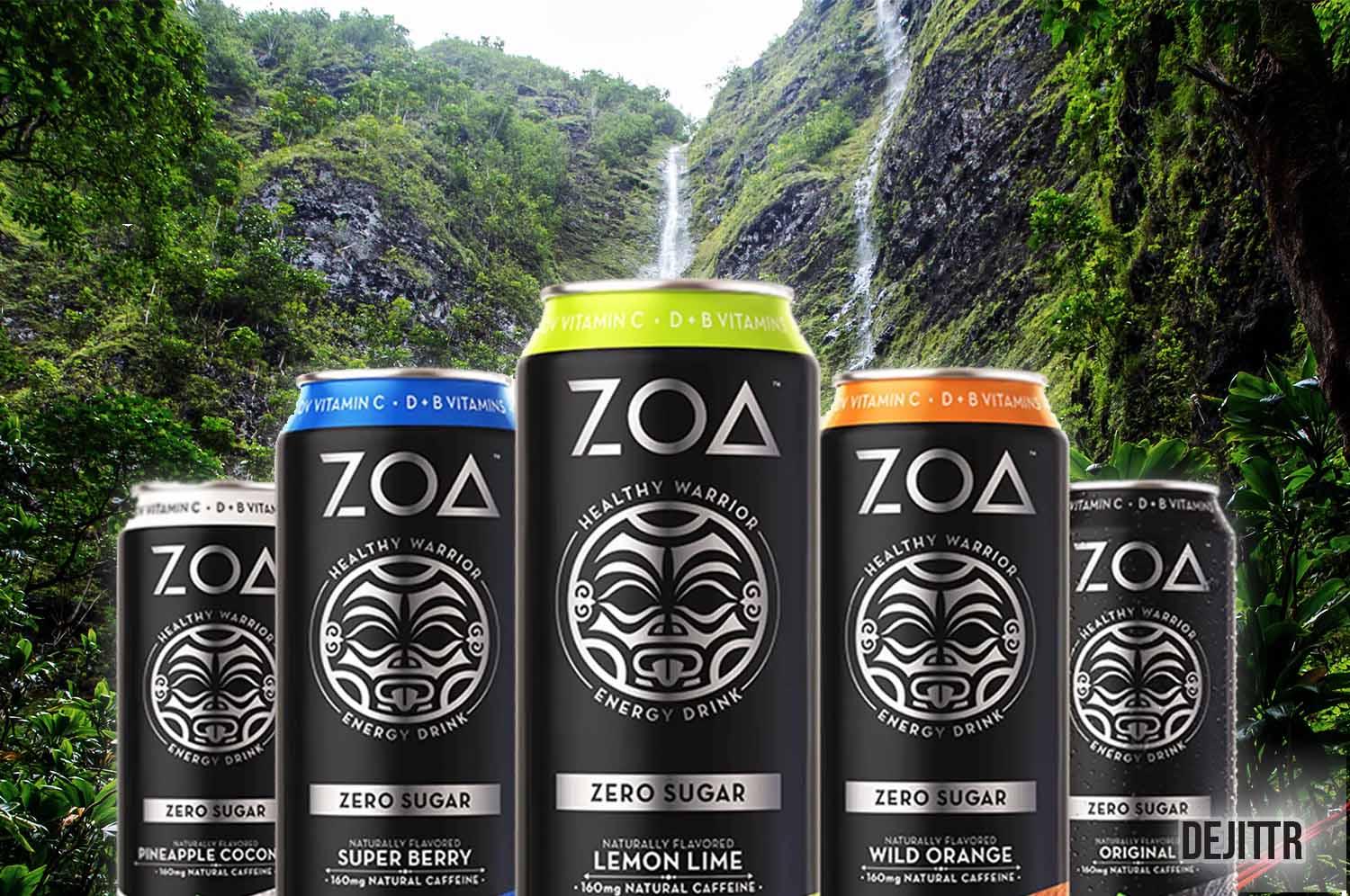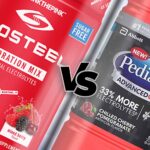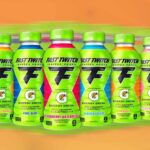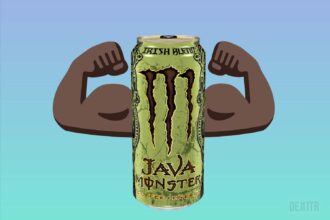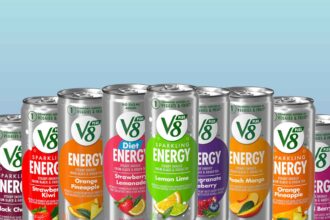The energy drink world was set abuzz with news of the Rock introducing Zoa Energy Drink in 2021. It is reportedly a “larger than life” beverage, like the icon who owns it.
But with celebrity ownership comes media scrutiny. And many websites have started making different claims about Zoa’s health and nutrition.
Key Takeaways
Zoa Energy Drink is marketed as a healthier energy drink alternative with natural ingredients and sustained energy without the crash. It still contains caffeine and stimulants that can have harmful effects if taken excessively. The impact on an individual’s health varies, and it’s best to consume it in moderation as part of a balanced diet. Consulting with a healthcare professional before making significant dietary changes is recommended.
In this article, we will get into the individual benefits of different ingredients of Zoa Energy Drink. You will also learn about the beverage’s pros and cons and how it compares to a classic energy drink like Red Bull.
By the end, you will know whether Zoa is for you and, if it is, how much of it you can drink each day.
Zoa Energy Drink Ingredients: What’s Inside?
By diving deeper into its ingredient makeup, let’s look at how healthy the Zoa energy drink is. In this section, we will break down the Zoa formula, so you know what’s inside its caffeinating, delicious cans.
Zoa Energy Drink contains Green Tea Extract, Camu Camu Extract, Vitamins, Natural Flavors, Acerola Juice Powder, Sodium Citrate, Turmeric Extract, Citric Acid, Choline Bitartrate, Sucralose, Acesulfame Potassium, Amino Acids, Natural Caffeine, Potassium Citrate, and Carbonated Water.
The formula, at a glance, features plenty of beneficial fruit extracts and supplements, including Amazonian fruits like the Barbados Cherry.
One can say that Zoa Energy Drink looks promising. But to be sure it does more good than harm, one must understand what each ingredient contributes with one-off and long-term intake.
The benefits of Zoa Energy Drink ingredients:
| Zoa Energy Drink Ingredient | Effect |
| Green Tea Extract | Promotes weight loss (in the absence of sugar), improves exercise recovery, and helps regulate blood sugar. It is a net positive in energy drinks. |
| Camu Camu Extract | Helps reduce blood pressure and excess blood sugar. This supplement also has plenty of antioxidants and is rich in vitamin C. It is a net positive in sugar-free drinks. |
| Vitamins | Zoa’s vitamin makeup features Ascorbic Acid, Niacinamide, Calcium Pantothenate, Pyridoxine Hydrochloride, Thiamin Hydrochloride, Riboflavin, Folic Acid, Cholecalciferol, Cyanocobalamin. Their combined effect with long-term intake improves immunity, skin health, and metabolic activity. However, consistent use of a highly caffeinated beverage isn’t advisable. |
| Natural Flavors | This term indicates flavoring agents that aren’t disclosed. Given that we don’t know what this unregulated term constitutes in this specific context, it might have a net positive or negative effect on the consumer’s health. |
| Acerola Juice Powder | This is a vitamin-C-boosting ingredient with a net positive effect. |
| Sodium Citrate and Citric Acid | These ingredients reduce the overall acidic effect of the energy drink. They are net-neutral and reduce acid reflux post-consumption. |
| Turmeric Extract | Improves heart health and reduces cancer risk. An overall positive addition to the formula. |
| Choline Bitartrate | It is great for your liver and mood management. It is also a cholesterol regulator that can help people who experience cholesterol spikes. |
| Sucralose | This is a calorie-free sweetener that is derived from sugar and tastes the closest to sugar. It helps keep the calorie profile of the beverage as low as it is. |
| Acesulfame Potassium | This sweetener has undergone very little scientific scrutiny and was found to cause cancer in lab animals. It is approved by the FDA because there isn’t sufficient evidence to prove it causes cancer in humans. No matter how minute, the risk it introduces is a net negative. |
| Amino Acids | The Amino Acids in Zoa Energy Drink are L-leucine, L-glutamine, L-valine, L-isoleucine, L-arginine, and L-citrulline. Collectively, they improve muscle mass, immunity, energy levels, blood pressure, and blood flow. They are net-positive in the formula. |
| Natural Caffeine | This is the main ingredient that does the heavy lifting for the formula. Its effect is almost instant and can be experienced with a single serving. 160mg of natural caffeine might be a net positive for the short term but consuming that much caffeine in a single sitting over the long run is not advisable. |
| Magnesium | It makes sense why Magnesium is a crucial component of the energy drink’s formula since it is integral to almost every biochemical reaction that breaks down food and makes energy available to the body. |
Zoa Energy Drink Pros (The Good)
After looking at the net effects of Zoa Energy Drink ingredients, it is clear that the beverage has plenty of pros.
Let’s look at how these benefits compare to other energy drinks, so you can decide if Zoa is healthy enough to make you quit your favorite energy drink.
Gives You a Significant Boost in Energy
Zoa energy drink contains plenty of caffeine. With as much caffeine as 3 cups of coffee, Zoa upstages Red Bull and many traditional energy drinks.
The extra caffeine can be beneficial on a day when you really need something different. But to become dependent on Zoa would limit your options. The advantage remains but has a diminishing effect over the long run.
It May Help Reduce Weight
Traditional energy drinks are full of sugar which the caffeine can help metabolize quicker for instant energy — Zoa’s lack of sugar and its abundance of caffeine results in high metabolic activity.
Caffeine targets sugar and carbohydrates already in the body and burns through them to energize the body. The downside of the lack of sugar is that one cannot experience the best effect of Zoa while fasting.
It Is Rich in Healthy Supplements
If the ingredients section shows anything, Zoa has plenty of vitamins, amino acids, and healthy fruit and root extracts to be considered a healthy drink.
However, most of these supplements are beneficial with repetitive consumption, and none of them are worth the addictive effect of the beverage.
Similar supplements, minus the amino acids, are present in True North Energy Seltzer, which has 120 mg of caffeine.
Given that there are alternative ways to get similar supplementation without getting used to 160 mg of caffeine, this pro of Zoa energy drink is technically present but practically questionable.
It is very Stomach-Friendly
If Red Bull gives you heartburn, Zoa might be a welcome break because it has sufficient alkaline content to reduce the odds of acid reflux.
Depending on your stomach sensitivity and overall diet pH, Zoa might be kinder to your stomach compared to other energy drinks.
Zoa Energy Drink Cons (The Bad)
Now that you know the advantages to expect from Zoa energy drink, let’s look at its drawbacks. Knowing its cons will help you decide if Zoa Energy Drink’s pros are worth it.
Remember, most of this drink’s advantages come with regular consumption. So let’s see the downsides of regularly consuming Zoa Energy Drink.
It Contains Acesulfame Potassium
Acesulfame Potassium hasn’t been widely tested, and its initial tests on lab animals were not very promising.
The sweetener could have a carcinogenic effect even though the current level of testing suggests that Acesulfame Potassium does not cause cancer in humans.
The quantities consumed via Zoa are minute enough that the chances of getting cancer are practically zero. But the consequence is serious enough to give one pause no matter how minute the odds.
Given that there are stevia-sweetened energy drinks, the presence of Acesulfame Potassium in Zoa is a comparative drawback.
It Has a Serious Amount of Caffeine
The second side effect of Zoa is far more noticeable. While you will not see cancer patients blaming Zoa or its sweeteners, you will see people who do not get a kick out of caffeine anymore because they started consuming 160 mg of caffeine habitually.
This amount of caffeine is not dangerous, so consuming Zoa Energy Drink daily is possible without harming your health.
But this will limit your energy drink choices as you’ll be unable to get the buzz you require from Red Bull (which has just as much energy drink as an overfilled cup of coffee).
The drawback of overcaffeinated drinks also has a flipside: when you are jetlagged or exhausted, regular energy drinks that you’re used to won’t give you the extra oomph you need. A single can of Zoa will do the job, provided that you’re not used to Zoa.
Zoa vs. Red Bull Head to Head
Zoa is backed by Dwayne “The Rock” Johnson, while Red Bull is the first energy drink ever. They both have interesting points that differentiate them.
Let’s look at how they compare to each other. We will conduct this comparison on effectiveness, potential side effects, and implied user profile.
Red Bull is an energy drink you can consume responsibly with ease, while Zoa has an excessive formula that requires careful use. Zoa does more for your health overall, but Red Bull strikes the kind of balance that is better for everyday use.
Effectiveness
Red Bull is more effective than Zoa when both are consumed on an empty stomach. But Zoa is generally more impactful given that it contains 160 mg of caffeine and plenty of supplements that encourage quick metabolization of sugars and carbs.
Potential Side Effects
While Zoa has many more positive effects, it also has more side effects.
Acesulfame Potassium in it can have adverse effects, though this is not scientifically proven. More serious is its caffeine content, which can get you hooked on a high dose.
Red Bull has less caffeine (110 mg in a 12-ounce can), which makes it a more efficient beverage for daily consumption. But its sugar content can cause obesity and weight gain.
Implied User Profile
Zoa, with its bodybuilder backing, seems to aim at replacing pre-workout. Most pre-workouts have similarly high caffeine and amino acid content with zero calories.
In contrast, Red Bull seems to have a broader appeal. Red Bull is more careful with its messaging and caffeine content.
Despite competition and other energy drinks constantly attempting to one-up each other in serving size and caffeine content, Red Bull maintains its caffeine content close to that of a cup of coffee.
Where other energy drinks try to put as much caffeine in a can as a human is allowed to drink in a day, Red Bull makes sure that one can drink at least two cans in a day.
Red Bull is marketing to a broader audience and is more efficient with its caffeine and sugar balance.
Red Bull doesn’t market excess, it markets effectiveness.
Where Monster sponsors mixed martial arts brands, and Zoa has a Samoan branding and bodybuilder ambassadorship, Red Bull sponsors car racing and similar sports. It is a safe, efficiency-first beverage.
Where Red Bull has a sugar-free secondary version, Zoa Energy Drink pushes its sugar-free version as its main one and the one that contains sugar as its secondary one. This shows which one is better for fitness enthusiasts.
Healthy Amount Of Zoa You Can Drink Per Day
Because of its high caffeine content, you can drink no more than two cans of Zoa daily. 2.5 cans hit the maximum allowed limit for human consumption, which is why the healthy amount of Zoa you can drink per day is one can (12 ounces).
Zoa Energy Drink Flavors
Aside from Zoa Energy Drink Classic, the beverage is available in Lemon Lime, Wild Orange, Pineapple Coconut, and for a short period, Cherry Limeade.
Since the energy drink is pretty young, its flavor variety is expected to expand over the coming years.
FAQ
Zoa Energy Drink doesn’t contain any gluten and is safe to consume if you are on a gluten-free diet. Zoa Energy drink contents do not include even trace amounts of gluten.
Zoa Energy Drink is not vegan, but its sugar-free version is vegetarian-friendly. Bang Energy is a vegan-friendly high-caffeine alternative you can consider.
Zoa’s amino acids could be derived from animal products. Its sugar variety contains trace animal products, making it a candidate for non-vegan but vegetarian-friendly designation.
Zoa Energy Drink has not received its Kosher certification yet. It is also not on the certified non-Kosher list of any rabbinical council yet. Any conclusion without an assessment would be speculative.
Photo altered by dejittr.com | Photo attribution: Kalen Emsley


